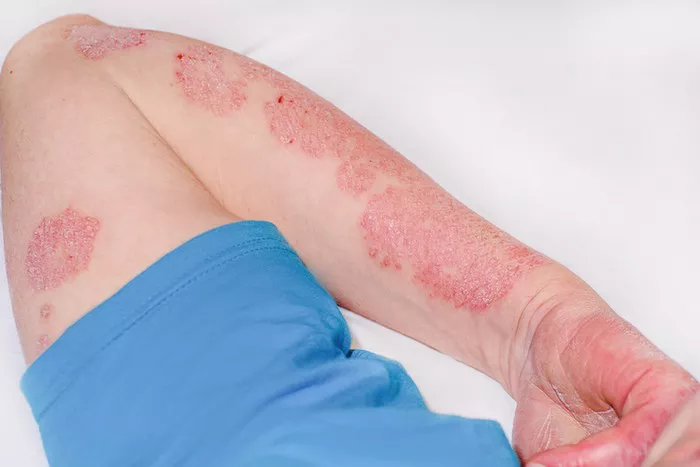Eczema, also known as atopic dermatitis, is a common skin condition that causes dry, itchy, and inflamed skin. While many factors contribute to eczema flare-ups, diet plays a significant role. Certain foods can trigger or worsen symptoms in some individuals. This article will explore the foods that may irritate eczema, how they affect the skin, and tips for managing your diet to help control flare-ups.
Understanding Eczema
Before delving into specific foods, it’s essential to understand eczema. This chronic condition affects millions of people worldwide. It can appear anywhere on the body but is most commonly found on the hands, face, and inside of the elbows and knees. Symptoms can vary but typically include:
Dry skin: Affected areas often become flaky and rough.
Redness: Inflammation leads to red patches that may look angry or irritated.
Itching: This is often the most distressing symptom, leading to scratching that can worsen the condition.
Crusting: Scratched areas can develop crusts or blisters that may ooze.
The Link Between Food and Eczema
Diet can significantly impact eczema symptoms. While not everyone with eczema has food sensitivities, certain foods are commonly reported to trigger or worsen symptoms. Understanding these foods can help individuals manage their eczema better.
Common Food Triggers
1. Dairy Products
Dairy is a common trigger for many people with eczema. Milk, cheese, and yogurt can cause allergic reactions or sensitivities in some individuals. The proteins in cow’s milk, especially casein and whey, may contribute to inflammation and skin irritation.
2. Eggs
Eggs are another potential trigger. Both egg whites and yolks can provoke allergic reactions, leading to flare-ups in sensitive individuals. Those with a history of egg allergies are particularly at risk.
3. Nuts
Nuts, especially tree nuts like walnuts, cashews, and peanuts, can be problematic. They are common allergens that may exacerbate eczema symptoms. It’s essential to monitor your body’s response to different nuts.
4. Wheat and Gluten
Wheat and gluten-containing grains may irritate some people with eczema. Gluten is a protein found in wheat, barley, and rye. Individuals with celiac disease or non-celiac gluten sensitivity often report skin issues, including eczema.
5. Soy Products
Soy is another common allergen. It is present in many processed foods and can trigger eczema flare-ups in sensitive individuals. People who react to soy should be cautious about reading labels.
6. Fish and Shellfish
While fish is often considered a healthy protein source, it can be a trigger for some people. Shellfish, in particular, is a common allergen that may worsen eczema symptoms.
7. Citrus Fruits
Citrus fruits like oranges, lemons, and grapefruits can irritate sensitive skin in some individuals. Their high acidity may lead to skin inflammation and worsen itching.
8. Spices
Certain spices, such as cinnamon, cloves, and garlic, can trigger eczema in some people. While spices add flavor and health benefits, they can also cause irritation.
9. Processed and Sugary Foods
Processed foods often contain additives, preservatives, and high levels of sugar. These ingredients can lead to inflammation, making eczema symptoms worse. Sugary foods can also cause spikes in blood sugar levels, leading to skin issues.
10. Alcohol
Alcohol can dehydrate the body, leading to dry skin and worsening eczema. Certain alcoholic beverages, especially those with added sugars or artificial ingredients, can trigger flare-ups.
How Food Triggers Affect Eczema
Food triggers can lead to eczema flare-ups in several ways:
Allergic Reactions: Some foods cause the immune system to overreact, leading to inflammation and skin irritation.
Inflammation: Certain foods can promote systemic inflammation, making existing skin issues worse.
Nutritional Deficiencies: An unbalanced diet can lead to deficiencies in essential nutrients like omega-3 fatty acids, vitamins, and minerals, which are crucial for skin health.
Identifying Your Triggers
Not everyone with eczema reacts to the same foods. It’s essential to identify your specific triggers. Here are some tips:
1. Keep a Food Diary
Record everything you eat and note any eczema flare-ups. This practice can help identify patterns and specific food triggers.
2. Elimination Diet
Consider trying an elimination diet, where you remove potential trigger foods for several weeks and then gradually reintroduce them one at a time. This approach can help pinpoint what irritates your skin.
3. Consult a Professional
A registered dietitian or allergist can help you identify food sensitivities. They can provide guidance on maintaining a balanced diet while avoiding irritants.
Managing Eczema Through Diet
Making dietary changes can help manage eczema symptoms effectively. Here are some strategies to consider:
1. Focus on Whole Foods
Choose whole, unprocessed foods whenever possible. Fruits, vegetables, whole grains, lean proteins, and healthy fats can support overall skin health.
2. Omega-3 Fatty Acids
Incorporate foods rich in omega-3 fatty acids, such as fatty fish (like salmon and sardines), flaxseeds, and walnuts. Omega-3s have anti-inflammatory properties that can benefit skin health.
3. Stay Hydrated
Drinking plenty of water helps keep your skin hydrated. Dehydration can worsen dry skin and eczema symptoms.
4. Probiotics
Consider adding probiotic-rich foods like yogurt (if tolerated), kefir, sauerkraut, and kimchi to your diet. Probiotics can support gut health, which may positively impact skin conditions.
5. Vitamin D
Vitamin D is essential for skin health. Safe sun exposure and foods like fatty fish, egg yolks, and fortified products can help maintain adequate levels.
Additional Lifestyle Tips
Along with dietary changes, consider these lifestyle tips to manage eczema:
1. Moisturize Regularly
Keeping your skin moisturized is crucial for managing eczema. Use fragrance-free, hypoallergenic moisturizers to lock in moisture.
2. Avoid Irritants
Identify and avoid irritants such as harsh soaps, detergents, and certain fabrics (like wool) that can trigger flare-ups.
3. Manage Stress
Stress can worsen eczema symptoms. Practice relaxation techniques like yoga, meditation, or deep-breathing exercises.
4. Consult a Dermatologist
If your eczema persists or worsens, consult a dermatologist for specialized care and treatment options.
Conclusion
Eczema is a complex condition influenced by various factors, including diet. While not all individuals will have the same food triggers, common irritants include dairy, eggs, nuts, wheat, soy, fish, citrus, spices, processed foods, and alcohol. Identifying personal triggers through a food diary and elimination diet can help manage symptoms effectively. Emphasizing whole foods, staying hydrated, and maintaining a healthy lifestyle can support skin health. If you’re struggling with eczema, consider seeking professional guidance to develop a personalized management plan.
Related topics:


























